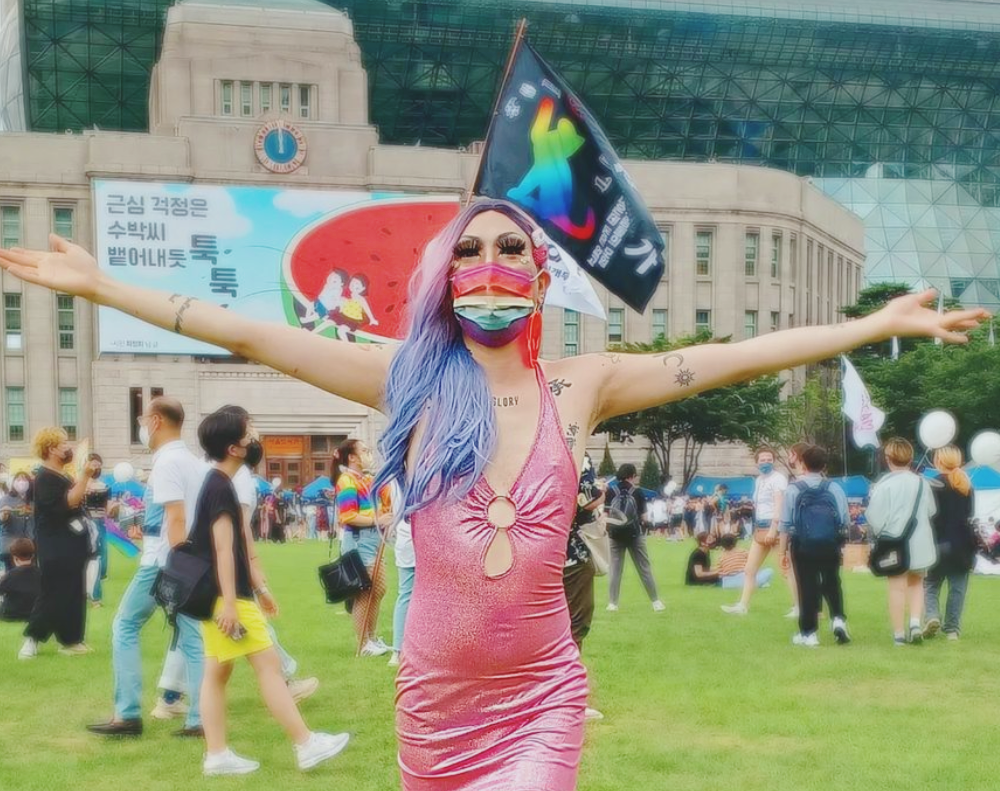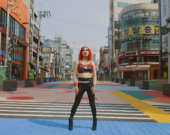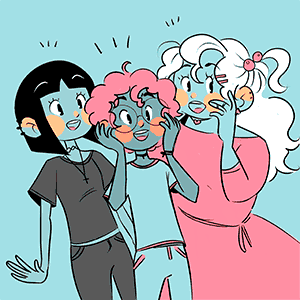South Korea is one of the most conservative countries around the globe and it does not hide it. Recently, people who are part of the LGBTQIA+ community were assaulted on the streets and even the Proud Parade, which has been celebrated for more than 20 years, almost did not happen in 2022. Scenarios like this show us how important it is that there are people like Hurricane Kimchi, south korean drag queen and activist who fights for the queer community rights in their country.
In a very important conversation with K4US, Hurricane spoke about LGBTQIA+ community rights in South Korea, the law against discrimination and Queer Proud Parade, held in Seoul. Besides that, Kimchi told us how their drag was born and how they started to use the performance to be an activist and help the community. Check it out!
On the 17th of May, the International Day Against Homophobia, Transphobia and Biphobia was celebrated. Looking at friends, people close to you, and the South Korean LGBTQIA+ community as a whole, do you think the current scenario for you is really one of celebration?
We have a lot of events on and around IDAHOTB (International Day Against Homophobia, Transphobia and Biphobia) here in Seoul, every year, too. Looking back, we have come a long way, but we still have a long way to go, until everybody in our community can feel safe to be who they really are without worrying about risking all the things that matter to them — family, friends, home, jobs, mental and physical health etc.
LGBTQ+ were not even mentioned in media, or talked by people openly at all when I was a kid, but now we do acknowledge them (us, LGBTQ+) and talk about them, but it doesn’t mean that it’s done in a safe environment for the LGBTQ+ people. The more visible we become, the hateful and aggressive the religious (mostly conservative Christian) groups and politicians become, too.
According to a survey conducted by Gallup Korea the support for the anti-discrimination law is already a majority among the South Korean population and political parties. On the other hand, there is also the presence of politicians with homophobic ideas occupying important positions in the new government. Do you believe that, with this duality, there are real possibilities to make this necessary and urgent law become a reality soon?
It’s been 14 years since the law started to be in discussion, but it still never happened. It is definitely more frequently mentioned and talked about these days, but we never know until it really happens. There are politicians who are trying to take out the ‘LGBTQ+/sexual-orientation-related articles’ too, so if that’s the anti-discrimination law they are talking about and want, then it’s no use for us, really.
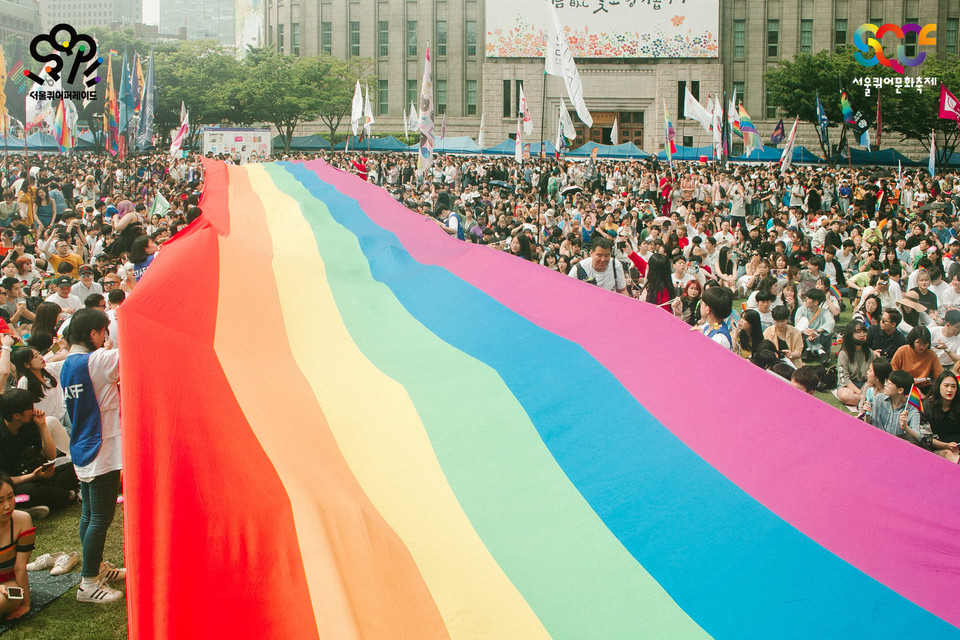
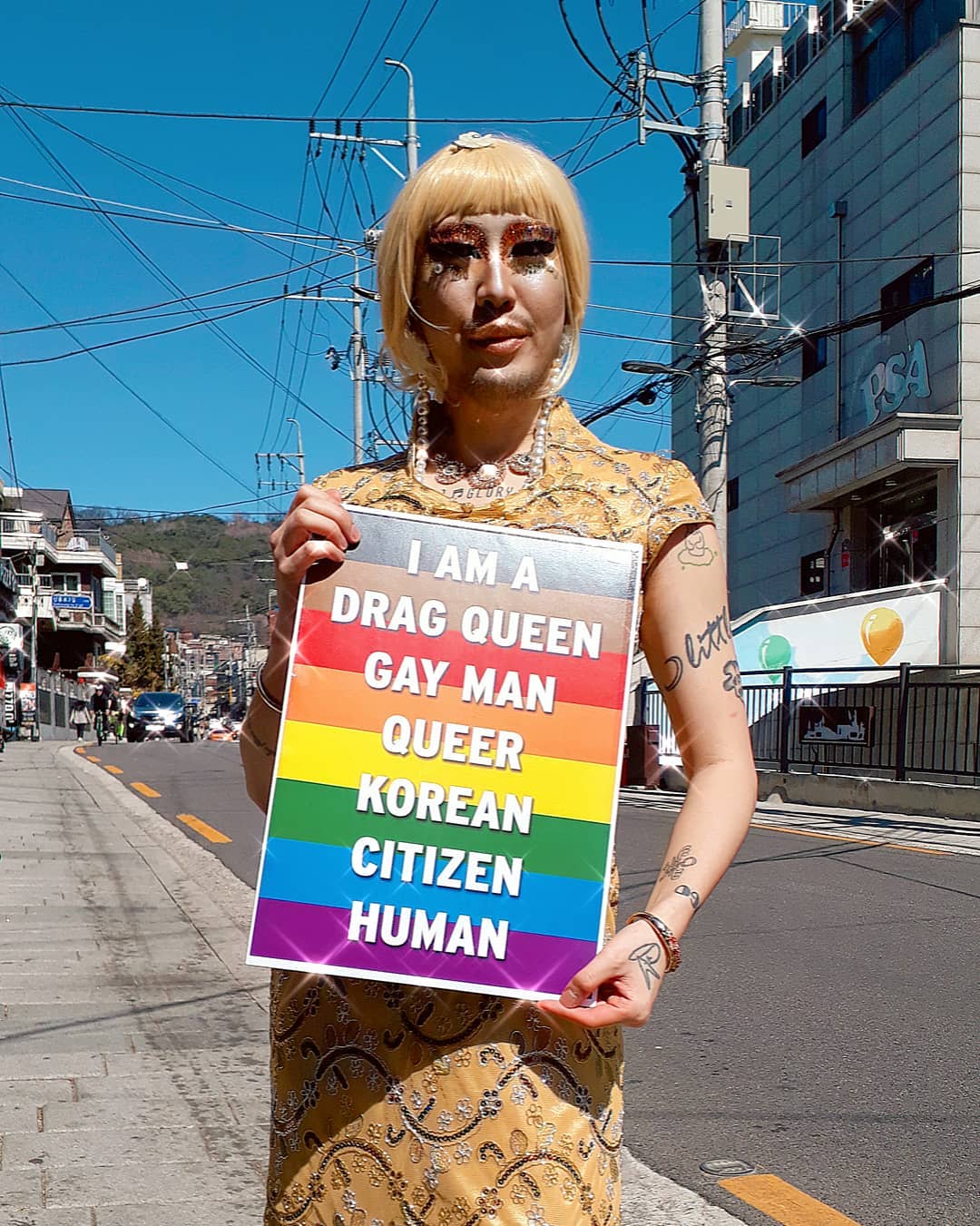
Recently, Holland — one of the few Korean artists that are openly gay — was a victim of an homofobic attack, suffering physical and verbal violence. And just with this event, several doubts arise for those who do not live the LGBTQIA+ reality in Korea. Is this a common experience for the community and we don’t hear about it because they’re not public figures? Do you believe that if an anti-discrimination law were already in place, Holland and the community as a whole would be better protected?
Physical violence, compared to the US and other western countries, doesn’t take place as often or as visibly in South Korea, but it does happen for sure. If you are the victim, the statistics and “frequency” doesn’t matter. We have witnessed a number of Christian groups and individuals physically hurting people and breaking things at the 1st Incheon Pride (Incheon Queer Culture Festival).
Like I said earlier, the more visible we get — which we are —, the more we get attacked too. It’s part of the progress I guess, but it doesn’t justify the violence and the situation. The law would not automatically change everything and make the world better, but that would be a good place to start.
We know that the experience of no LGBTQIA+ community should be boiled down to cases of homophobia. So, we also want to shed light on positive experiences. With diversity in mind — of expressions, people, and movements — if you could pick one aspect of the Korean LGBTQIA+ community to highlight and present to the rest of the world, what would it be?
It would be the Seoul Pride Parade! It started with only 50 people in 2000, and in 2019 (the last one before the pandemic started) 120,000-150,000 people attended it. Unlike some of the hyper commercial parade events in some countries, it still feels like a protest, rally and a community event that presents more of actual LGBTQ+ artists, individuals, small businesses, organizations, rather than big corporations.
As far as I know, the organizing committee is very cautious and selective when it comes to getting sponsorships, and does not receive money from the government. Although that’s one of the reasons why the event always ends up with a huge debt, we try our best to keep it the way it should be.
We searched for a little information about the Seoul LGBTQIA+ Parade in South Korea, but the information is not accurate enough about the event. Knowing that you are directly linked to the movement, can you tell us about this story of Seoul Prefecture not allowing the Parade to be held this year?
I just made and uploaded a Complete English-Language Guide to 2022 Seoul Pride video, so check it out! It has pretty much everything I can tell you in it!
The possibility of being able to return to the streets with the Parade has made everyone very happy, since we have suffered a lot with the necessary restrictions against Covid-19. What is the expectation for the return of the event and what does the return to the streets mean for this moment?
In 2020, after a COVID-19 breakout in Itaewon, the ignorance and prejudice of Korean media and the people ended up causing a huge damage to the LGBTQ+ community. A lot of people were outed, the community as a whole got blamed and called out, even though it wasn’t just the LGBTQ+ people who got affected or spread the virus. And at the end of the day, all of these people were patients and victims.
And then a lot of gay bars and clubs faced more discrimination regarding restrictions and bans, in the last two years. So it is really important for us to reclaim these spaces and our rights and raise our voices more than ever.
Tell us a little bit about yourself. How was Hurricane Kimchi born? When did you realize that you should embrace the LGBTQIA+ cause and fight for the movement?
I quit business school and started doing art and became active in the LGBTQ+ scene in Korea in the early 2010s — making art, making friends, getting to know activists and figures in the community, etc. — and started doing drag in 2014, just for fun. Then, the more I did drag, the more I realized that drag could be for more than just fun — not that just having fun is wrong though — and it could be a means of expressing myself as an artist.
It could also be incorporated into activism, and it could be used to help the community too. So I’ve been not only performing in drag, but also organizing and hosting events for the community, participating in protests and rallies in drag too, and creating spaces for my friends and the LGBTQ+ people and allies in Korea, as much as I could. Also, I started writing and composing my own music and releasing it as musician Hurricane Kimchi in 2020.
You may listen to my singles on all the platforms, and watch the music videos on YouTube!
Do you have any wish to come to Brazil someday? If so, tell us a little bit about what you are curious about or what you would like to know.
I do actually have some good Brazilian queer friends and know some Brazilian artists who live here, and they are kind and creative. I’m into movies in general and I connect with a culture or a country, or get to know them with movies a lot. I know movies aren’t always realistic, but I think it’s something when you are physically far and have an ocean in between. So I’d like to explore more the Brazilian queer movies and movies in general, and, of couse, the drag scene as well, remotely for now, though, but I definitely would love to visit Brazil one day. Not to mention that I know how fabulous Grag Queen (the winner of Queen of the Universe) and Pallo Vittar are!
Can you tell us how the process of composition of your songs comes to you?
I usually come up with the message and the story I’d like to share, and then build the melodies and instrument development around that. There are times I come up with a melody first and that becomes the foundation of the song — “Hurricane” is an example. I came up with the “I am a hurricane” part first and then I made the whole song around it. But yes, even in that case, I put a lot of thought into the lyrics because I don’t just wanna make a song that’s catchy but it also should have something real in it. But I do wanna make less serious songs that are just very easy to listen to, that just makes the listeners feel good!
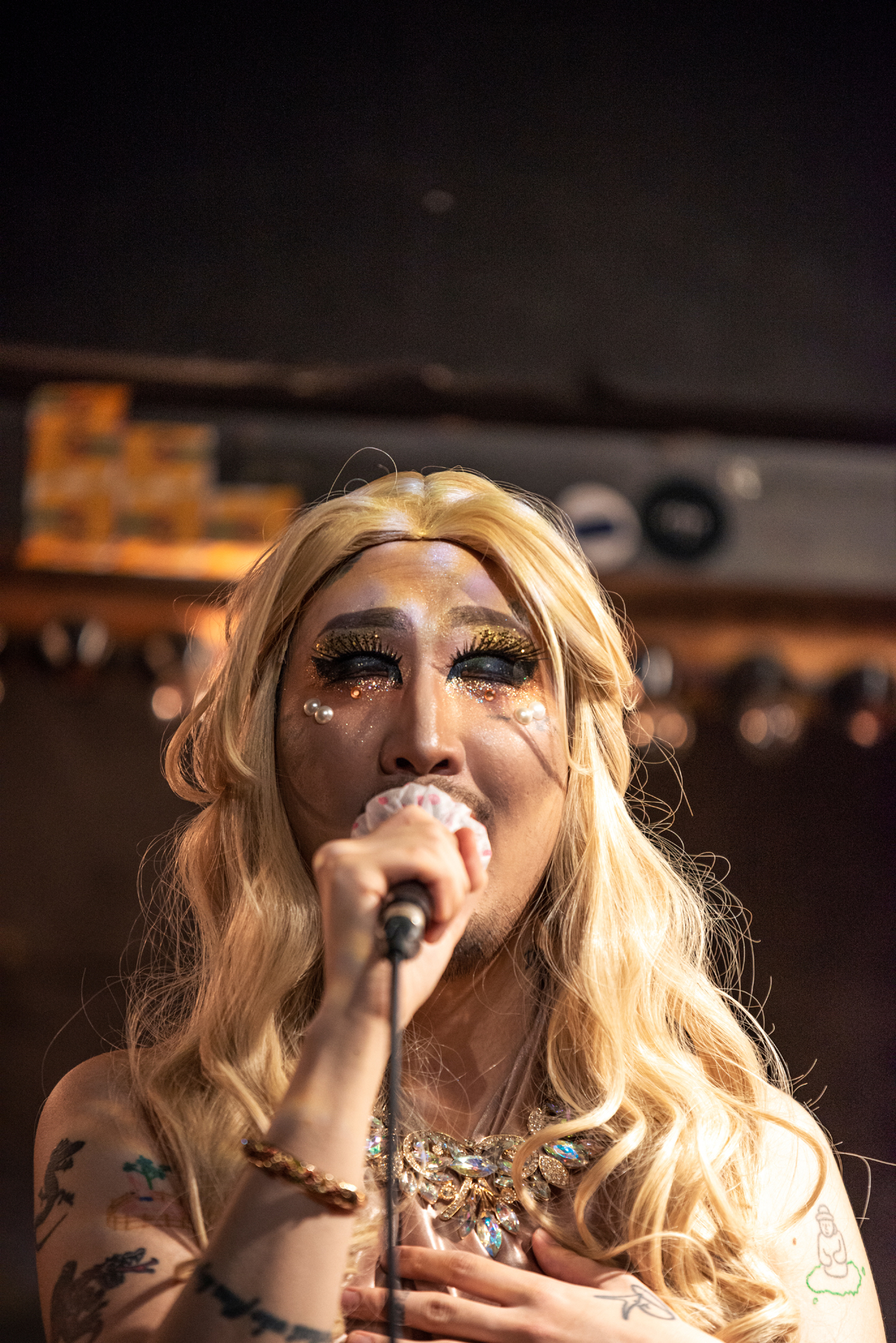
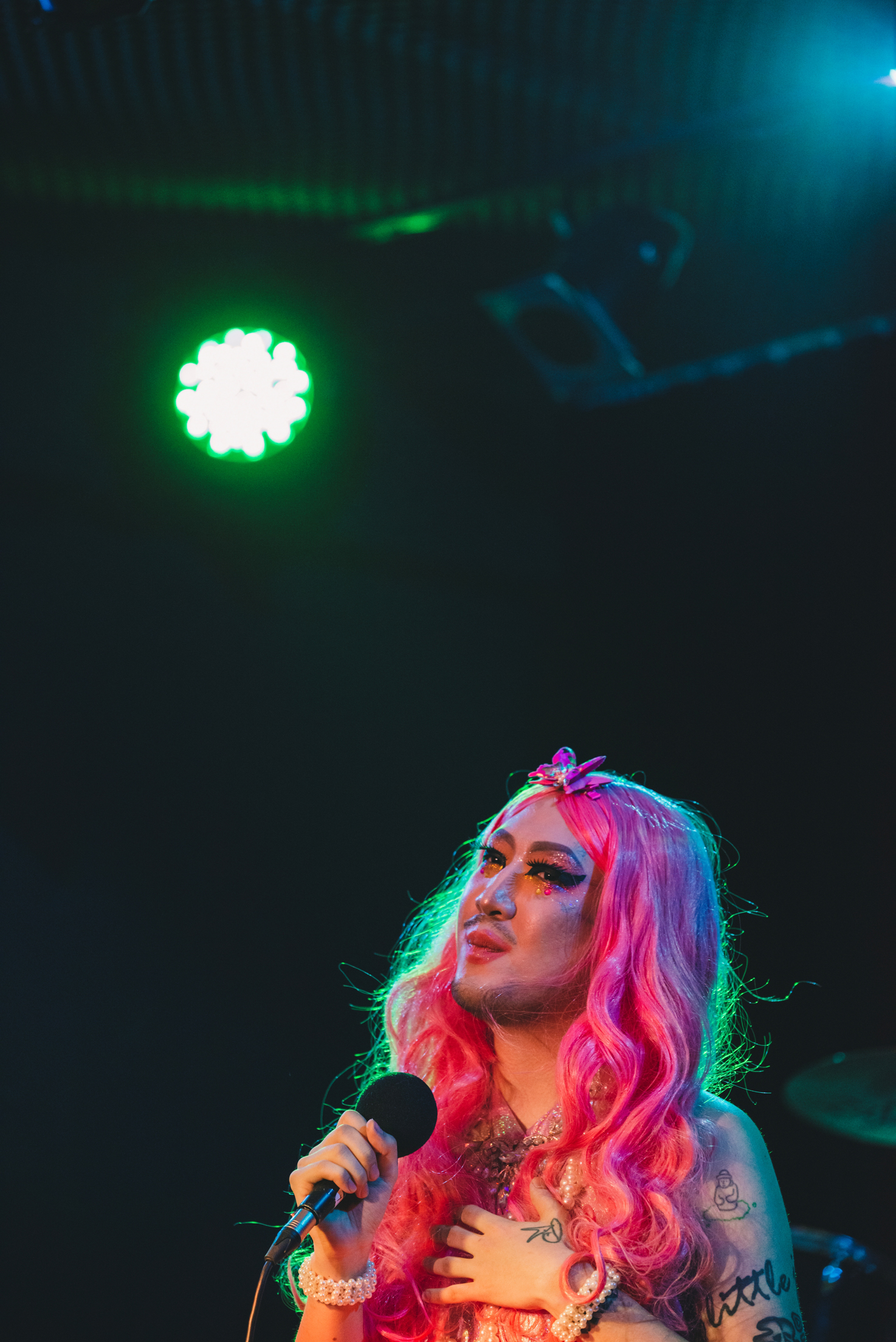
Tell us who or what inspires you to maintain the strength in these hard days and to compose your songs.
For well-known artists, James Cameron (film director) and Kelly Clarkson (singer songwriter) are some of the people that inspire me to keep going and working hard.
For drag performers, I like the down-to-earthness of Jasmine Rice, Brita Filter, and all the drag queens and kings and things in our community in Seoul inspire me to become better, as a person and as an artist, every day!!
Aproveite e leia também
Interview conducted by K4US | Text by Ana Carol | Revision by Hope | Translation by Annyie and Hope | Please, do not use the content of this interview without linking to the website www.k4us.com.br
 Português
Português English
English 한국어
한국어